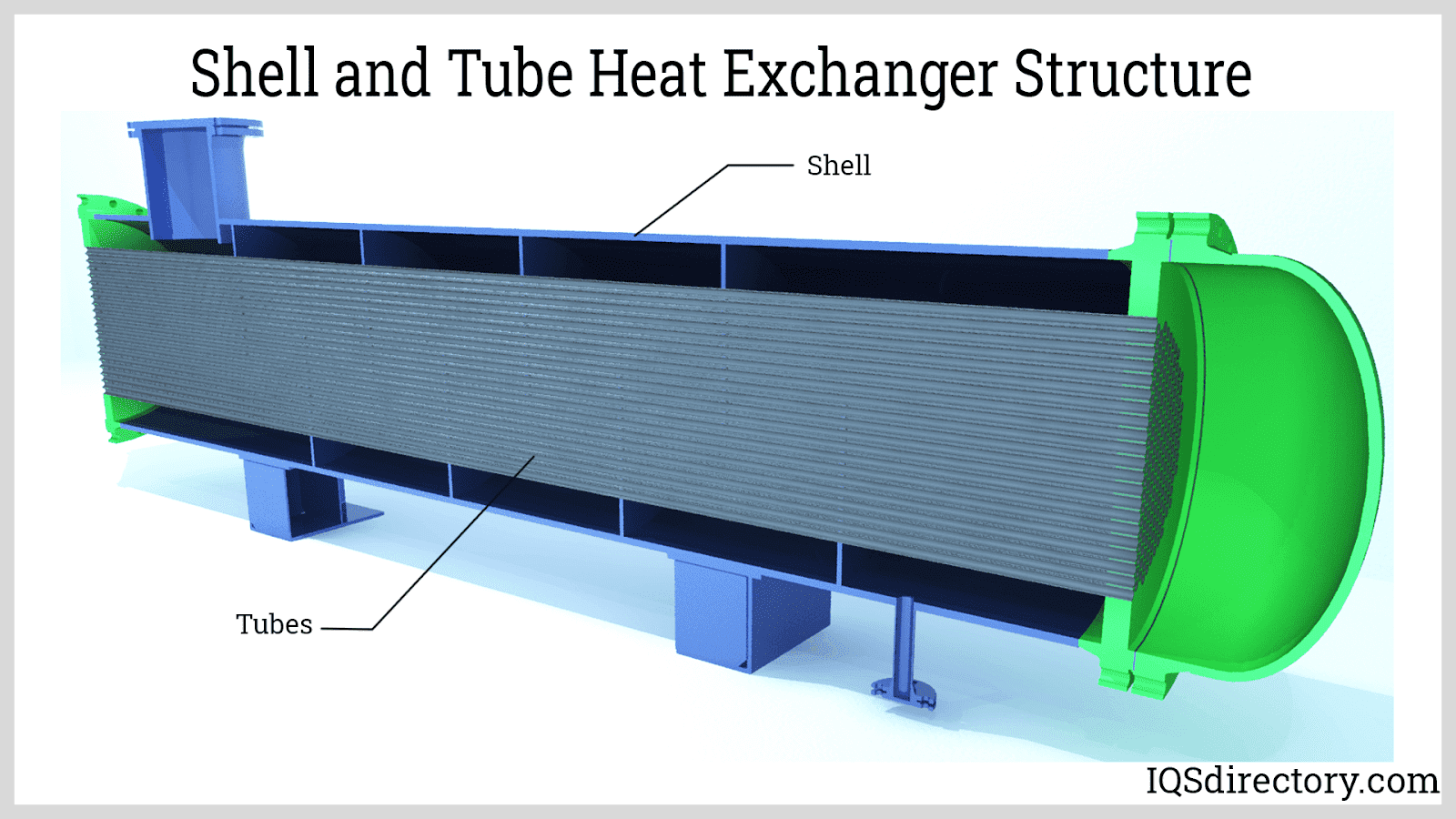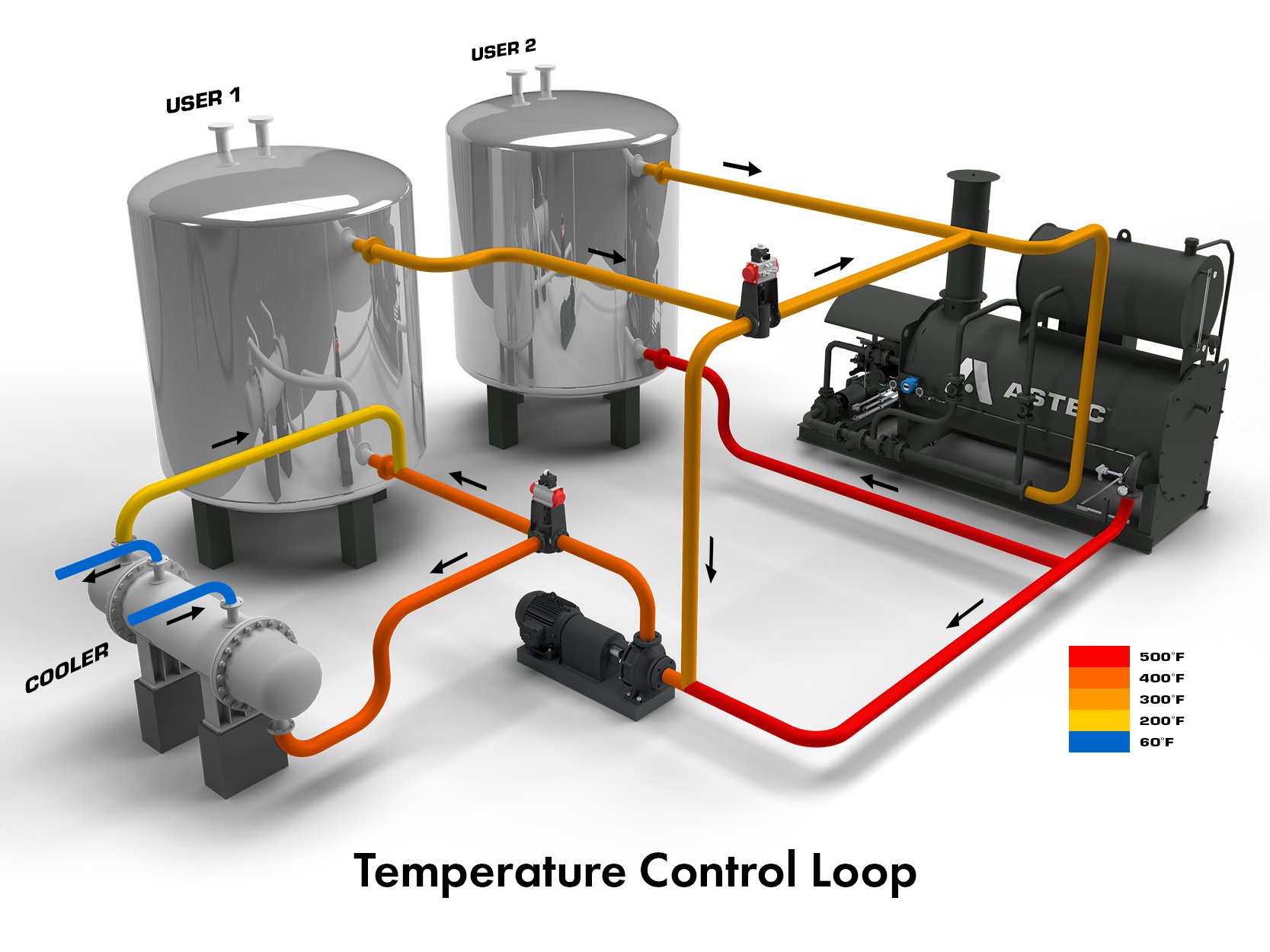Top 10 Thermal Innovations Driving DVS Heat Transfer Systems Forward
The Duty of Heat Transfer Equipments in Sustainable Energy Solutions for the Future
Heat transfer systems are important in the quest for sustainable power options. They maximize thermal power administration, improving the efficiency of sustainable technologies. By employing devices like transmission, radiation, and convection, these systems lessen power losses. Their function in solar thermal and geothermal applications is particularly substantial. As advancements emerge, the capacity for further advancements increases crucial inquiries concerning future power methods. What advancements will form the landscape of sustainable power?
Comprehending Heat Transfer Equipments

The Importance of Thermal Energy Monitoring
Reliable thermal power monitoring is necessary for making the most of energy effectiveness and reducing waste in numerous systems. By controling temperature and optimizing Heat transfer processes, companies can considerably minimize energy usage and functional expenses. Reliable administration entails the implementation of sophisticated technologies and methods that keep an eye on and control thermal problems within systems, making sure that power sources are utilized successfully. In addition, appropriate thermal power management adds to lowering greenhouse gas emissions, lining up with international sustainability objectives. It additionally improves system reliability and performance, leading to enhanced item top quality and longer tools life-span. Inevitably, focusing on thermal energy administration is an important step in the direction of developing a lot more sustainable energy solutions and promoting a liable strategy to energy intake in commercial and property contexts.
Applications of Heat Transfer in Renewable Energy
While various renewable resource resources assure sustainability, the effective application of Heat transfer plays an essential duty in their efficiency. In wind power systems, Heat transfer is made use of for generator element cooling, improving efficiency and longevity. Geothermal energy counts on reliable Heat exchange between the planet's subsurface and the liquid flowing in the system, taking full advantage of energy removal. Biomass power processes additionally benefit from Heat transfer, as it helps in converting natural materials right into functional gas through pyrolysis and gasification. Additionally, in hydropower, maintaining optimal temperature levels in tanks can enhance energy outcome. Each of these applications demonstrates the crucial importance of Heat transfer systems in boosting renewable resource technologies, inevitably adding to an extra sustainable energy future.
Enhancing Solar Thermal Power Performance
As solar thermal power systems remain to evolve, boosting their efficiency has actually ended up being crucial for maximizing power output. Breakthroughs in Heat transfer technologies, such as improved thermal storage products and innovative Heat exchangers, play a significant duty in improving performance. By using innovative products that have superior thermal conductivity, systems can record and transfer Heat better. In addition, incorporating tracking systems that adhere to the sun's path warranties that collectors get ideal solar exposure throughout the day. Making use of nanotechnology in solar absorbers can even more enhance energy absorption rates. Integrating automated control systems aids take care of and manage temperature levels energy distribution effectively, leading to minimized losses and boosted general system performance. These improvements pave the way for even more lasting solar thermal energy solutions in the future.
Geothermal Heating: A Sustainable Option
Geothermal home heating presents a feasible alternative for lasting power, providing significant environmental benefits through reduced greenhouse gas discharges. Its effectiveness and cost-effectiveness make it an appealing alternative to standard heater. However, difficulties associated to execution has to be resolved to maximize its possible influence.
Environmental Advantages of Geothermal
Typical heating approaches add substantially to greenhouse gas discharges, geothermal home heating presents an engaging alternative that lessens environmental effect. By using the Earth's interior Heat, geothermal systems utilize a renewable resource source, substantially decreasing reliance on fossil fuels. This method generates minimal carbon emissions, making it a cleaner alternative for domestic and commercial heating. Furthermore, geothermal systems advertise power efficiency, as they require less power contrasted to standard heating systems. DVS Heat Transfer Systems. The usage of geothermal power additionally helps in decreasing air contamination, enhancing regional air top quality and public health. As a sustainable service, geothermal home heating sustains environment change reduction efforts, placing itself as a vital part in the shift towards a greener future
Effectiveness and Cost-Effectiveness
Exactly how does geothermal home heating gauge up in regards to performance and cost-effectiveness contrasted to typical furnace? Geothermal heating demonstrates remarkable effectiveness, commonly accomplishing a coefficient of efficiency (POLICE OFFICER) of 3 to 5, implying it generates three to 5 systems of Heat for every device of electrical power consumed. This efficiency converts right into reduced operating expense, specifically in areas with secure geothermal sources. Initial installment prices can be greater than conventional systems; nevertheless, long-lasting savings on energy costs and decreased upkeep expenditures can offset these ahead of time financial investments. In addition, numerous governments incentivize geothermal systems through discounts and tax obligation credit histories, enhancing their cost-effectiveness. Overall, geothermal home heating arises as a sustainable and economically sensible choice to even more traditional home heating options.
Implementation Difficulties and Solutions
Many difficulties can hinder the widespread application of geothermal furnace, in spite of their clear advantages as a sustainable power option. High first installment prices frequently hinder home owners and investors, making funding a considerable obstacle. Additionally, the geographical restrictions of suitable geothermal sites limit accessibility in certain regions. Neighborhood regulations and permitting procedures can likewise complicate project growth, leading to delays. Public awareness and understanding of geothermal systems stay reduced, preventing approval. To deal with these difficulties, targeted education and learning Our site campaigns can improve public basics knowledge, while government incentives could ease monetary concerns. Teaming up with local authorities to streamline laws might help with smoother project authorizations, eventually promoting the adoption of geothermal home heating as a sensible, lasting energy alternative.
Developments in Heat Transfer Technologies
Advancements in Heat transfer innovations play a crucial duty in boosting power performance and sustainability. Advanced Heat exchangers and phase change products go to the center of these growths, using considerable renovations in thermal management. These modern technologies not just enhance energy usage yet additionally add to reducing environmental effect in numerous applications.
Advanced Heat Exchangers
Advanced Heat exchangers play a crucial role in boosting power effectiveness across various applications in lasting power services. These devices assist in the transfer of Heat in between 2 or even more liquids, markedly reducing power consumption in procedures such as industrial heating, cooling, and power generation. Innovations in products and style, such as the usage of nanofluids and small configurations, have actually resulted in enhanced thermal efficiency and minimized dimension demands. Additionally, innovations in electronic monitoring and control systems permit maximized procedure, additional raising performance. By lessening waste Heat and maximizing energy recovery, progressed Heat exchangers contribute to lower carbon footprints and sustain the shift toward eco-friendly modern technologies. Their continued growth is vital for accomplishing international energy sustainability goals.
Stage Change Materials
The assimilation of stage change materials (PCMs) right into Heat transfer technologies represents a considerable advancement in power management and efficiency. PCMs absorb and launch thermal energy during their stage changes, making it possible for reliable temperature policy in structure products and energy systems. By keeping excess Heat throughout optimal durations and releasing it when demand boosts, PCMs add to fill shifting and energy conservation - DVS Heat Transfer Systems. This ability boosts the performance of eco-friendly energy systems, particularly in solar thermal applications. Additionally, PCMs can improve the thermal convenience of indoor environments, minimizing dependence on standard home heating and cooling down approaches. As advancements in PCM formulas continue to emerge, their function in sustainable energy services is poised to grow, offering encouraging avenues for future research and application

Future Potential Customers for Heat Transfer in Lasting Energy
As the demand for sustainable energy remedies proceeds to increase, the function of Heat transfer systems is becoming increasingly important fit future modern technologies. Technologies in designs and products are anticipated to enhance effectiveness in Heat transfer, reducing energy losses in various applications. The combination of innovative thermal storage systems, such as phase change materials and thermochemical storage, will allow far better management of energy sources. Research right into nanofluids and biomimetic Heat exchangers might further maximize thermal performance. The adoption of clever technologies will certainly permit for real-time monitoring and flexible control of Heat transfer processes. These developments are poised to considerably add to the overall effectiveness and sustainability hop over to these guys of energy systems, leading the method for a much more energy-efficient future.
Often Asked Questions
Just How Can Individuals Implement Heat Transfer Solution in your home?

Individuals can apply Heat transfer systems at home by installing energy-efficient home appliances, making use of glowing home heating, and optimizing insulation. These measures boost power effectiveness, minimize costs, and promote sustainable practices in property environments.

What Are the Prices Related To Mounting Heat Transfer Solutions?
The expenses connected with installing Heat transfer systems differ extensively, usually incorporating equipment, installation labor, and upkeep. Aspects such as system type, home dimension, and local laws greatly affect the total expense entailed.
Exist Federal Government Motivations for Heat Transfer System Installations?
Federal government rewards for Heat transfer system setups vary by area and can include tax credits, gives, and rebates. These monetary benefits intend to motivate adoption, inevitably advertising energy efficiency and lowering ecological impact within communities.
Just How Do Heat Transfer Equipments Impact Power Expenses?
Heat transfer systems especially affect power bills by maximizing power efficiency. By boosting the transfer of Heat, these systems minimize power intake, leading to lower utility prices and producing a much more lasting approach to energy management.
What Maintenance Is Required for Heat Transfer Solutions?
Maintenance for Heat transfer systems consists of normal inspections, cleaning of elements, checking liquid levels, making sure proper insulation, and replacing worn parts. These jobs aid maintain efficiency, stop break downs, and extend the system's functional life expectancy.
These systems facilitate the motion of thermal power from one medium to an additional, enabling the transfer of Heat for home heating, power, or cooling generation functions. Geothermal power counts on reliable Heat exchange in between the earth's subsurface and the liquid circulating in the system, taking full advantage of energy extraction. Additionally, geothermal systems promote power effectiveness, as they need much less power compared to conventional home heating systems. Advanced Heat exchangers play an important function in boosting energy efficiency throughout numerous applications in sustainable energy solutions. Heat transfer systems significantly affect power expenses by enhancing power efficiency.